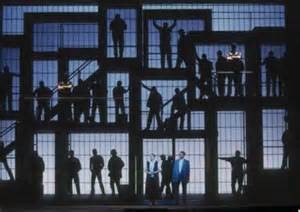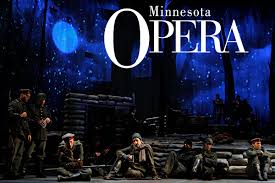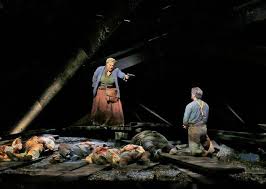I agree completely with David Gockley’s remarks, as reported in Slipped Disc on September 1, about both the knee-jerk reaction of some critics (not just East Coast critics either) and the weakness of the opera, Written on Skin. I attended a performance of the work in Paris and was absolutely dumbfounded at the positive reaction to it. I do not categorically dislike opera influenced by this kind of music. I love both Wozzeck and Lulu and other works of that style, and I don’t think Written on Skin can be compared to them. I found it empty, and above all boring. It was all I could do to stay in the theater for the whole performance.
The problem with criticizing a work like this, blessed as it has been by music critics all over Europe and now in New York, is that anyone disliking it is accused of being old fashioned and out of touch. American leaders of opera companies have to be concerned about those who buy tickets to our performances if we are to keep performing. I don’t deny that there are those who genuinely find a work such as Written on Skin wonderful, but my experience tells me that we are talking about a small segment of those who are willing to spend the money it takes to buy opera tickets for a run of several performances in large theaters. I am happy for them, and it’s great that they can enjoy it. But they will probably not fill even one American house of several thousand seats, certainly not two. As the former General Director of a large American opera company, I want to point that, as it was in the nineteenth century when opera was a more popular art form than it is now+
, we (I think fortunately) have to be concerned about those who buy tickets to our performances if we are to keep performing.
When every composer was composing this type of music, which stemmed from the work of Alban Berg and Arnold Schoenberg, contemporary opera in this country was foundering. If an opera company produced a work in this style, the single-ticket audience didn’t come and the subscribers protested. This happened over a period of thirty or forty years. Fortunately in about 1990, composers began to compose more music that adhered, however loosely to the tonal system, and new operas came to life all over America.
No one did more to encourage this new music than David Gockley
who was then General Director in Houston before moving to San Francisco in the same position. He has steadfastly championed American opera, presenting, I believe, a new opera every season in San Francisco as he did in Houston. Santa Fe, now under Charles MacKay, has done the same, and other opera companies, such as Minnesota, have also presented more than a few U.S. world premieres. In most cases, as has happened in opera since its origin in 1600, only a few have received second stagings
or frequent performance. But the audiences have come and have not left unhappy. I realize that some who read this will sneer, but if we are going to have opera, we are not here to annoy our audiences. No one can force the public to subscribe or buy tickets. The importance of the box office is not a new thought. Verdi always asked first what was happening at the box office; he, Puccini, Wagner, and many contemporary composers, such as Jake Heggie, are writing for audiences, not for the few. Further, I have noted that Heggie’s operas have had great success with audiences in their performances in Europe.
My reaction to Written on Skin has nothing to do with whether the audience here would or would not like it–as I wrote above I found it empty and unrewarding–but as a person who presented opera for over thirty years in a large American city I am concerned about the way many of those who write about opera seem to dislike or dismiss works that are not basically atonal and enthusiastically praise the reverse. It’s the same way with productions. Those that ignore the words sung are often praised more readily than productions that relate to what the singers are singing. There is a weird kind of intellectual elitism that completely ignores that what is presented onstage, at least in the United States, must sell tickets and must make audiences want to return for more.
An American General Director like David Gockley not only has the responsibility of presenting opera to which opera lovers will come but more importantly has principal singers and chorus, musicians, stagehands, and artisans of all kind who are dependent on him to keep the opera houses of this country open and working. Politicians do not support American opera; the people for whom we present opera do, and without them we would not exist.





RIGHT ON, SPEIGHT!
I agree totally. I saw the Aix-en-Provence production of Written on Skin, which was boring and pretentious. Only the last five minutes were worth listening to and watching. I was mystified at its success. Many thanks for your insights.; please keep them coming.
Best regards, Richard Covington
I am about the same age as both Mr. Jenkins and Mr. Gockley but my view is 180 degrees the other direction. I see from the comments that both seem to have, for some time, given up looking at the contemporary scene – a serious fault. In the past few decades or so there has been a major movement by composers to write for the stage, a great change from the immediate post war period and this has produced dramatic work which, above all, has found an audience.
While the “old guard” in America has promoted composers who are marching to the rear, in Europe managers have been looking for new talent but composers that seem to be making a connection with the audience. I was at the Lyon premiere of Thierry Escaich’s opera “Claude” and the audience stood and cheered. A gripping story of the inhumanity of imprisonment, the brilliant but edgy music captivated the audience. It is on DVD now and recommended. If you want to deny the success of Benjamin’s opera, you are free to do so but the evidence (audience reaction) weakens your position. I was at the first performance of “Written” and the audience did not need critics (or opera managers) to tell them it was stirring and a major work. “Brokeback Mountain” is a remarkable new opera by Charles Wuorinen. He has been irritating audiences all his life with his theoretical, harsh music but, at the end of his career, this wonderful opera makes contact. The last act anguish of the failed love is an important moment in new opera.
If anyone actually interested in new opera does not know composers like Strasony, van der Aa, Turnage, Jonathan Harvey and others, you are missing a “new wave” of important new opera. Adler had the courage to present Reimann’s “Lear” in San Francisco in 1981. It is in the season this year at the Paris Opera and is considered a classic. There is an audience for good new opera. Where is the courage in America’s management?
Bravo Mr. Frankster! I agree 100%!
Most people have limited budgets for live musical performance, symphony, opera, recitals, etc. And outside of New York City, it may take many years to have the opportunity to experience the basic opera repratory, the so-called “top fifty” operas. So, would I pay to see “written on skin” or would I rather pay to see any number of the classic operas of the past 400 years? It is great that opera companies are presenting new works. It is also great that there is an audience for them. But again, outside of New York City, Chicago, and San Francisco, most local opera companies present at most 3-5 productions per year. So as a novice opera-goer, it might take me many years to experience the basics.
I enjoyed reading your post. FYI – Here’s a link to the original segment in which Gockley spoke about Written on Skin, from WQXR Radio’s Conducting Business podcast:
http://www.wqxr.org/#!/story/contemporary-opera-pleasing-both-connoisseurs-and-masses/
It’s quite clear why you didn’t like it. “I love both Wozzeck and Lulu and other works of that style, and I don’t think Written on Skin can be compared to them”. Wozzeck was written in the 1910s, Lulu in the 1930s, Written on Skin was premiered in 2012. Why should it sound like Berg? What would a man from 1830, enjoying Weber’s operas, say if he was offered a Tristan performance? (BTW, it’s not true that Wagner wrote for the masses: Bayreuth is, obviously, an elite enterprise, ideal conditions for an ideal audience! But it’s not the only false assertion in your paper).
Your position is typical to the desolate state of opera in the United States, and somehow it explains how it came to this: if people in opera management have such a low understanding of the impact of creation (OK, you create many new operas, but in a dusty musical language – I love 19th century opera as everybody, but I don’t need new 19th c. operas to be written now! Or Puccini subproducts). The Met crisis is a good example for this failure: when suddenly someone tries (quite clumsily, I agree) to change things, he looses his old audience and finds out no new audiences have been patiently formed. We have ‘Eurotrash’ haters in Europe too, but new approaches on opera as a whole (stagings, acting skills of the singers, importance of new works) are what saved our opera stage in the 1970s/1980s (Rolf Liebermann, who commissionned Messiaen’s Saint François, Gerard Mortier, Peter Jonas…), when the intellectual state of this art was at the same desolate point as now in the US.
Last summer I attended the premiere of Jennifer Higdon’s Cold Mountain. It sold so many performances that an extra one was added at the end of the season. It is tonal and audiences buy tickets. It’s not a big secret folks. If operas do not sell, we cannot keep playing them.
I really can’t follow this entire “conversation.” Mr. Jenkins didn’t care for “Written on Skin”. Other people did. So far so good. But soon he is talking about producing opera in large houses, like the one over which he presided so successfully for 30 years in Seattle, USA. Did I miss an important transition? How are wide critical and audience enthusiasm for “Skin,” a 75-minute chamber opera, and the economics of opera production in large houses connected? Has anyone suggested that “Skin” must be added forthwith to the standard repertory? Did anyone ever demand that Mr. Jenkins produce Berg’s Wozzeck or Lulu during his Seattle tenure? What, in fact, are he and Mr. Gockley so angry about? As Wozzeck’s Captain remarks: “Ich bin gang konfus.”